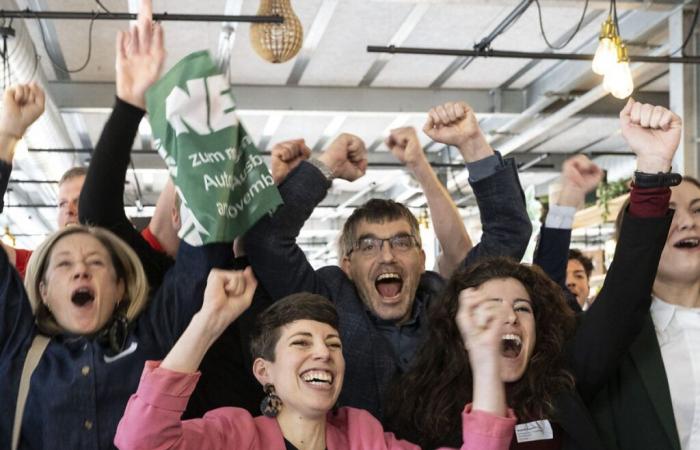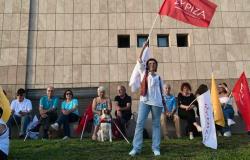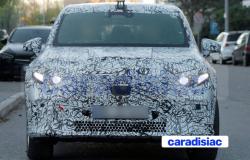Keystone-SDA
The motorway extensions were rejected at the polls on Sunday. Against the advice of the Federal Council and Parliament, the people rejected the six projects by 52.7%, including one in French-speaking Switzerland, according to the final results.
This content was published on
November 24, 2024 – 4.59pm
(Keystone-ATS) In total, 1,316,500 voters voted against the extensions, while 1,181,557 cast a “yes” vote in the ballot box. The participation rate was 45.05%.
All the cantons of French-speaking Switzerland say “no”. The Jura is the champion, at 62.6%. Neuchâtel follows (62.5%), then Vaud (58.6%), Geneva (57.1%) and Friborg (56.3%). In the canton of Valais, rejection amounts to 54.2%.
Beyond Sarine, the canton of Graubünden obtains the highest refusal rate (57.3%), followed by Bern (57%) and Basel-Stadt (56.4%). Zurich, Lucerne, Glarus, Uri and Obwalden also reject the extensions. Just like Ticino.
On the other hand, projects are accepted in the other German-speaking cantons, especially located in the north and northeast of the country, as well as in central Switzerland. Schwyz (59.2%) and Appenzell Innerrhoden (58.5%) are in the lead.
The vote was also positive, although less marked, in Solothurn, Basel-Landschaft, Aargau, Shaffhausen, Thurgau, St. Gallen, Appenzell Ausserrhoden, Zug and Nidwalden.
Some five billion francs
This is Federal Councilor Albert Rösti’s first failure at the polls. The six projects were valued at around five billion francs. Nearly a billion was planned for the Le Vengeron-Coppet-Nyon (GE/VD) axis, which was to be widened to two three lanes over a distance of approximately 19 km.
The other projects concerned the Wankdorf-Schönbühl (BE) section, which was to be widened from six to eight lanes, and the Schönbühl-Kirchberg (BE) section, which was to be expanded from four to six lanes. The envelope was also to be used to split the Rosenberg (SG), Rhine (BS/BL) and Fäsenstaub (SH) tunnels.
The referendum was tabled by the Transport and Environment Association (ATE) and the active-trafiC organization. He was supported by the Greens, the PS and the PVL, as well as around fifty nature and climate protection organizations.






